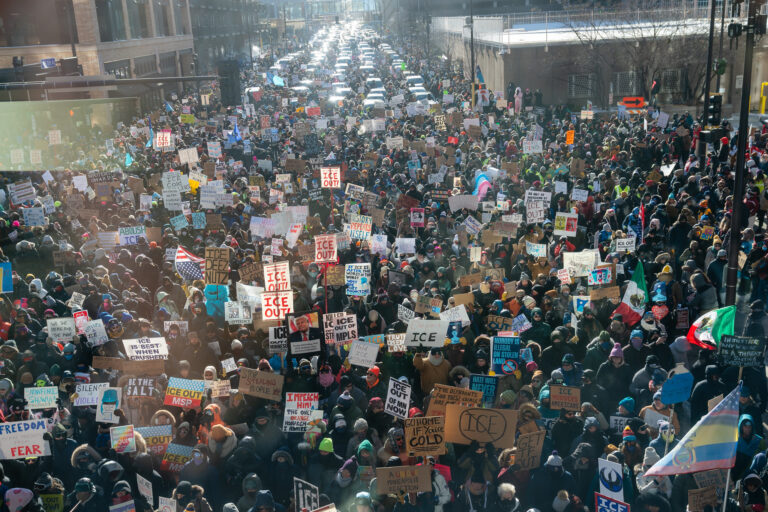Maddy Joseph is a student at Harvard Law School.
The Supreme Court heard oral argument on Monday in Janus. Analyses report that, as expected, there were pointed questions for AFSCME and Illinois by Justices Alito and Kennedy; the four liberal justices took every opportunity to highlight the potential effects of overruling Abood on collective bargaining and the ability of governments to manage their workforces. Justice Gorsuch was silent. There is a summary on SCOTUSblog, plus another analysis there. NPR, the Wall Street Journal, and the LA Times also have solid summaries. At the Atlantic, Garrett Epps highlights how little hard evidence there is in Janus–with no trial, there is not a developed record; and neither Janus nor the U.S. filled in those facts at argument.
The Times had a nihilistic editorial: assuming that the Court would overrule Abood, the editorial put Janus in political context. It began with Merrick Garland and ended, “Whatever the justices decide in Mr. Janus’s case, the drama that preceded it is another reminder of the importance of every Supreme Court appointment.”
In the lead-up to the argument, much of the coverage focused on the political forces driving the case. The Chicago Sun Times covered the intra-state dynamic in Illinois, where the Governor supports Janus and the Attorney General is with AFSCME. EPI and the American Prospect have guides to the groups, including the National Right to Work Legal Defense Foundation, behind the suit. At Slate, Sean McElwee and Mark Joseph Stern focus on the partisan stakes, writing, “While the legal theory upon which Janus is based is specious at best, the political theory is brilliant,” as Republicans stand to gain and Democrats to lose.
Other recent coverage has focused on the potential consequences. Five-Thirty Eight is more optimistic that unions can adapt to an adverse ruling. EPI points out that black women, who disproportionately hold public sector jobs and face a double pay gap, stand to lose the most if public sector unions decline. Vox has a more in-depth analysis of the potentially disparate racial impacts. And the Intercept explores the possible Pandora’s Box of legal claims–related to unions; related to taxes and state bar associations, for example–that a ruling for Janus could open.









Daily News & Commentary
Start your day with our roundup of the latest labor developments. See all
March 4
The NLRB and Ex-Cell-O; top aides to Labor Secretary resign; attacks on the Federal Mediation and Conciliation Service
March 3
Texas dismantles contracting program for minorities; NextEra settles ERISA lawsuit; Chipotle beats an age discrimination suit.
March 2
Block lays off over 4,000 workers; H-1B fee data is revealed.
March 1
The NLRB officially rescinds the Biden-era standard for determining joint-employer status; the DOL proposes a rule that would rescind the Biden-era standard for determining independent contractor status; and Walmart pays $100 million for deceiving delivery drivers regarding wages and tips.
February 27
The Ninth Circuit allows Trump to dismantle certain government unions based on national security concerns; and the DOL set to focus enforcement on firms with “outsized market power.”
February 26
Workplace AI regulations proposed in Michigan; en banc D.C. Circuit hears oral argument in CFPB case; white police officers sue Philadelphia over DEI policy.